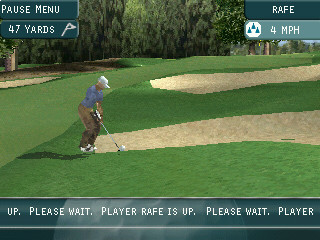 Ewan Spence: Tuesday's review of Brothers in Arms for the Next Gen N-Gage platform led to some interesting discussions in the comments on one of the under-reported issues in mobile application development - that of the cost of a game. Even with the various options available to promote a game, be it the N-Gage's options for free demos and time limited ‘full' versions of the game at reduced cost, or Sony Ericsson's Try and Buy system of shareware demos; the ultimate decision on whether to make a purchase will usually be determined by the price of the title in question.
Ewan Spence: Tuesday's review of Brothers in Arms for the Next Gen N-Gage platform led to some interesting discussions in the comments on one of the under-reported issues in mobile application development - that of the cost of a game. Even with the various options available to promote a game, be it the N-Gage's options for free demos and time limited ‘full' versions of the game at reduced cost, or Sony Ericsson's Try and Buy system of shareware demos; the ultimate decision on whether to make a purchase will usually be determined by the price of the title in question.
So how much should you charge? Well it's not an easy question to answer. The obvious reply is "as much as you can get away with", but how do you get to that number? And would you sell more copies at a lower price, thus gathering more revenue? If you work out the magic formula, let everyone know.
The N-Gage pricing was brought up in the comments, and let's start there, even though the issues apply across the board to all developers. Software purchases seem to be targeted at the impulse buyer, a mythical price level which is high enough to bring in enough revenue, but low enough so the person buying it doesn't really notice the cost of what they are buying leaving their wallet.
The problem here is that what is disposable income to a UK consumer might have significantly more value in another country, such as India. So either one country has to take precedence over another and have the price fixed for the consumers in country A (and country B can thus have a purchase cost wildly at odds in relative terms), or the seller can implement a policy where there is a different price for consumers in Country A compared to Country B - at which point everyone in Country B works out how to buy the title from Country A - or vice versa.
Most developers go down the route of a fixed price title, presumably thinking that sales are going to be focussed on the western continents of North America and Europe, but even that can lead to problems. In the current economic climate, you're going to be dealing with fluctuating exchange rates that could easily half your income over a few months.
There's also the comparison to be made with other gaming platforms. With an N-Gage game being in the region of £8, how does that compare to other platforms? If you're looking at platforms such as the Sony Playstation Portable, then consider their games retail from £20 to £40 for a new title. So there is a significant saving - but you could argue the scope and complexity of the games on the PSP actually merit the difference in the cost.
What might be a more valid comparison are the downloadable titles for the PSP, the Xbox 360 and other consoles. Titles such as ‘Beats' on the PSP (which allows you to listen to any of your MP3 music tracks while playing a Guitar Hero style rhythm game) are downloadable from the Sony PSP Store for £5, with the advantage that you can move the title to a replacement PSP with a free and simple ‘re-authorising' program from the store.
Should we be looking at other platforms to back up (or refute) our arguments? I think so, but only in general terms. The N-Gage is a new class of platform, one where online downloads are the only way of getting titles (other platforms have it as a secondary feature if we're being realistic). Is that a reason for prices that are above the £5 mark (currently the regular titles are £8 for a ‘full' copy)? I'm not so sure - there is a psychological barrier above £5, and I seem to get the feeling that many readers at All About Symbian/N-Gage think the Next Gen titles are a touch over-priced.
Whether that's right or wrong is something we'd only be able to tell from sales figures. Currently Nokia have only given up a rankings list of the popular titles. In the end though, I'm not sure that comparisons can give you much more than a ballpark figure - people will pay for what they believe is good value for money. For their money. If there is a quality product, at a sensible price, that people believe they need or will enjoy, then they'll go for it.
There is no magic price, there is just human nature. Make something that people want, and it will sell. Make them want it, through demos, advertising, buzz or coolness by association, and they will buy it. Be sensible in your expectations of returns, and you will be rewarded.


 Steve Litchfield: I'm perhaps not quite such a hardened gamer as Ewan(!) and perhaps this explains my slightly different take on this issue. I think the price of a game is almost irrelevant. Within reason, of course.
Steve Litchfield: I'm perhaps not quite such a hardened gamer as Ewan(!) and perhaps this explains my slightly different take on this issue. I think the price of a game is almost irrelevant. Within reason, of course.
Rather than try and dabble in 50 games in the course of a year, I tend to find 3 or 4 with unlimited playability (e.g. sports games) that I really like and then stick to them. For example, N-Gage's Pro Series Golf or Mile High Pinball or the generic third party games Oval Racer or Virtual Pool Mobile. Or maybe you prefer puzzles? Or shoot 'em ups?
Say I spend three hours a week playing games like this, at a conservative estimate (my wife would probably argue that the true figure is much higher!). That's 150 or so gameplay hours a year. If I were to spend those same hours working, I'd expect to be paid a fair few thousand pounds. Yes, I know you can't always do a direct 'time is money' comparison, but the amounts involved do give a flavour of my argument here.
If I know a game is going to give me that sort of sustained enjoyment and challenge, then it is completely irrelevant whether it costs me £5 or £8 or even £18 to buy. In terms of value for money it's going to be terrific.
Turning my attention to N-Gage, one feature of the system is that you get to try each game before you buy. I'm completely with Ewan on the silly nn-second limits on some of the trials, by the way. But even these aside, you do get a good idea of what the game involves and whether it's worth you investigating further. Add in the definitive All About N-Gage reviews and you get an extremely full picture without having to spend any money at all. And if you're still not sure, there's usually a 'buy for one day' option. Fork out the pound or so and you can thrash the game around for a few hours at the very least.
Once you've got to the point where you positively love a game, it really won't matter what the exact purchase price is - you'll buy it, you know you will.
Setting a price for generic J2ME games, such as the dozens of titles in Nokia's Download! system, is much harder, since there's never a chance to try them (and often no reviews to help), which is why amounts tend to stay in 'impulse buy' territory, so that you're not so cross after purchasing a lemon that you have to waste time and energy hassling some developer or customer support team.
I think the current N-Gage system is very well thought out. What's needed next are better games, more realistic trial versions, more use of online Arena gaming capabilities. These will come in time, hopefully. Pro Series Golf shows the way, despite its own flaws.
How much is a game worth? Well, Ewan's right in a way: make people want it and they'll pay. Look at Apple's pricing for their products, for example. And, despite stupidly high figures, we've all bought something from them recently. A game that's good enough, that has a sensible enough trial version and which manages to generate a decent level of buzz around the world - can virtually name its own price.
